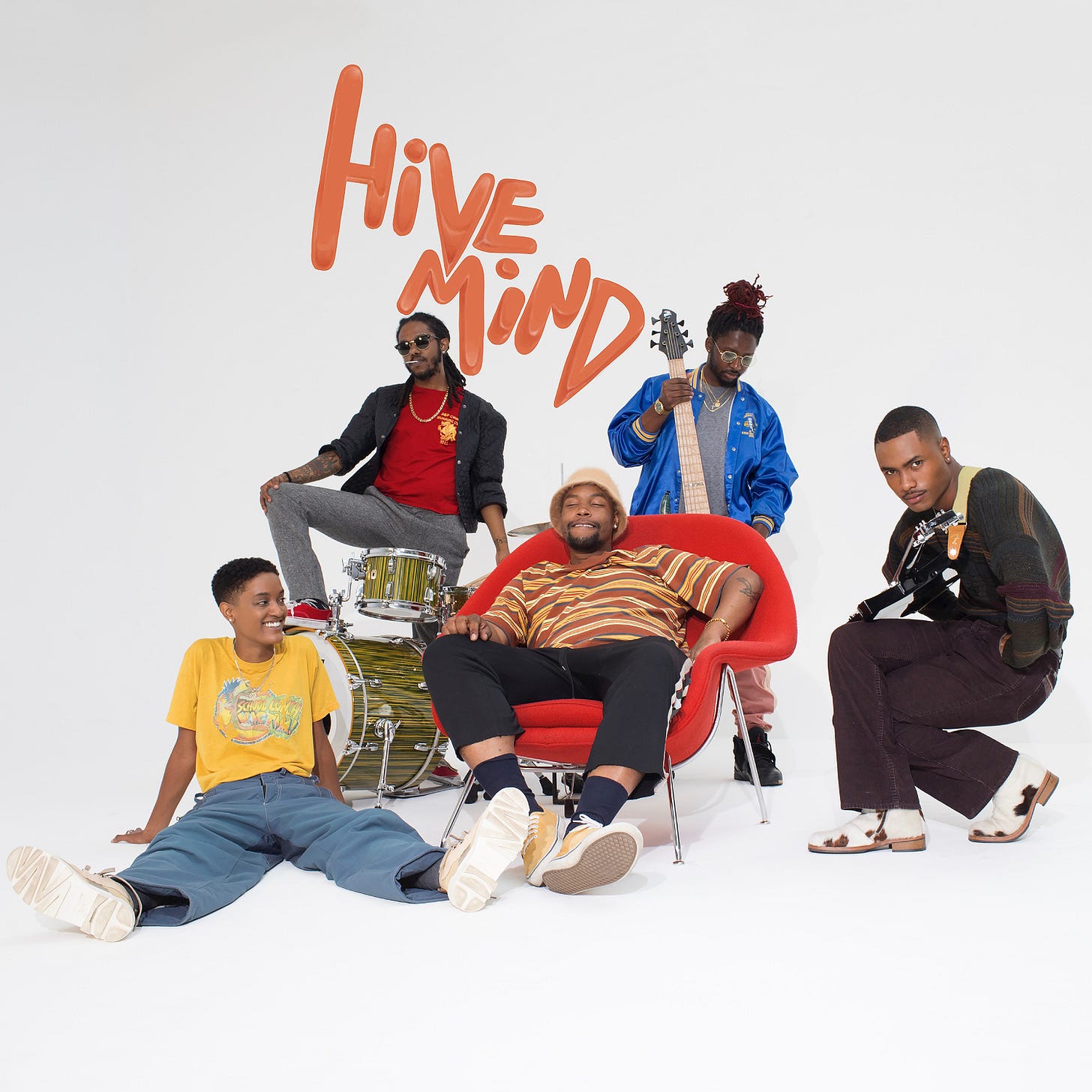Hive Mind: The Internet's Magnum Opus
Tracing the band's musical era and the dawn of a new chapter.
The Internet, recognized for their four distinguished albums and particularly their breakthrough 2015 GRAMMY-nominated third album, Ego Death, has redefined the nuances of romantic expressions with each delicate touch of harmonic finesse and drum programming.
Consisting of Syd, Steve Lacy, Patrick Paige II, Christopher Smith, and Matt Martians, the ensemble has significantly evolved from its origins as a wandering musical collective with ties to Odd Future. After a pause of three years, a period in which each artist sought to enhance their individual careers, The Internet regrouped to produce their most self-assured work, Hive Mind.
The band was undeniably in its zenith of creative and collaborative spirit, with their experimental ventures keeping us thrilled yet comfortable. Of primary importance, the album represents their most earnest and openly romantic endeavor. Hive Mind fuses the band’s poignant, relaxed, sensual, innocent, and subtly indulgent elements into a consummate piece that lacks any trace of desperation.
From the direct and stripped-down writing that underscores the joy found in the minor details to the polished vocal performances by Syd and Steve Lacy, the development over the three-year break and individual exploration is palpable in every member. Syd, as the leading lady, emanates an unprecedented level of confidence. Steve Lacy infuses each track with an otherworldly coolness, and his guitar techniques are so recognizable they can be identified from afar. Indeed, by the twelfth track, “Beat Goes On,” Lacy’s mastery of his instrument transports us to the stars and back. Paige and Smith are the rhythmic glue that holds the album's tight transitions together, notably seen in the industrial break on “Bravo,” where Matt Martians’ skilled programming also came into play.
As we commence listening to the album, we encounter The Internet in their most mature form. However, one must reflect on their past work to fully understand and appreciate the album. Compared to Hive Mind, their 2015 album, Ego Death, was more curt and less polished. Yes, Ego Death had its fair share of alluring moments and suggestive gazes, such as “Get Away,” “Girl,” and “Special Affair.” Still, it was also characterized by a near-exhausting desire that did not disrupt the album’s continuity but left us yearning for more punches. Fortunately, Hive Mind delivers a series of assertive jabs and powerful punches.
The passionate longing found in Ego Death, arguably The Internet's most appealing trait, is not absent in Hive Mind. Instead, the band's increased self-assuredness has led to a more refined exploration of this emotion. Tracks like “Come Over,” “Stay the Night,” “Mood,” and “Wanna Be,” along with other glimpses of Syd’s smoky talents, envelop the album in a warm, soothing embrace, foreshadowed by the steamy composition of “Roll (Burbank Funk).” In numerous ways, Hive Mind feels like an upgraded successor to Ego Death’s “Girl,” evolving the motifs and hypnotic peculiarities of the song into a compelling piece of work.
One needs to look no further than the unexpected loudness and completeness of “Bravo.” In a proper form-follows-function manner, Syd fully asserts herself over a backdrop of erratic drumming, singing with more force and frankness than all of Ego Death’s flirtations combined. It is indeed a self-awareness moment brought to life through neo-soul music. On “Stay the Night,” she makes the coy exciting and vibrant despite the smooth and silky production.
Hive Mind emerges as a representation of the concept that love feels—and sounds—better when one has self-love. The album consists of 13 tracks; without intermissions, guest features, or weak points, Hive Mind is a concise and no-frills revelation. For those craving a more unstructured record, the swift changes and dissections on “Come Over,” “La Di Da,” and “It Gets Better (With Time)” will certainly satisfy. The Internet has a knack for immersing themselves deep into a sound's essence and extracting its full potential. Hive Mind exhibits this richness and quiet glamor, not ostentatiously experimental, yet adorned with gem-like moments.
The sole drawback of the record is that it gives a distinct impression of being a final statement, or at least it should be if The Internet wishes to prolong their thriving career. The band produces music for life’s various stages, and as life progresses in chapters, Hive Mind seems to hint at the commencement of a new era. Whatever form this chapter takes, there is an undeniable sense that little space remains within the niche The Internet has cultivated. The band has finally discovered an optimal composition of members. With their composition and instrumentation still being exhausted, it’s a prime time for The Internet to make their next creative leap.


